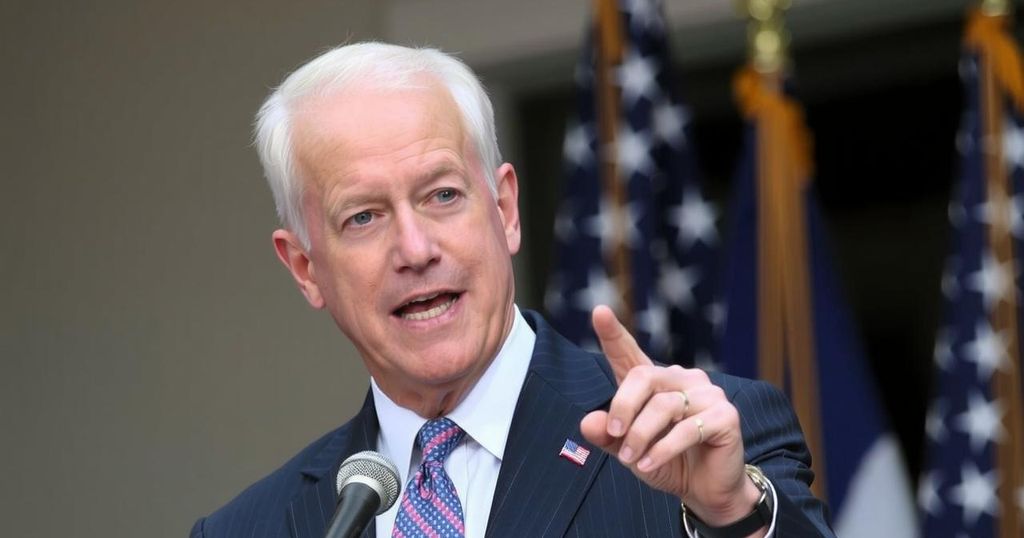Biden Responds to Putin’s Outrageous Christmas Attack on Ukraine with Increased Military Aid

On Christmas Day, Russia launched over 70 missiles on Ukraine, resulting in one death and multiple injuries. President Biden condemned the attacks, pledging increased U.S. military support for Ukraine. Meanwhile, the Ukrainian military’s use of robotic technology in combat marks a significant tactical evolution. The geopolitical landscape remains tense, highlighted by Slovakia’s Prime Minister Fico’s controversial meeting with Putin amid public protests against pro-Russian policies. The situation is compounded by varying reports on North Korean casualties and a Russian ship sinking in the Mediterranean.
In recent developments regarding the Ukraine-Russia conflict, U.S. President Joe Biden condemned Russia’s missile strikes on Ukraine, which occurred on Christmas Day and left at least one individual deceased while wounding six others. The assault involved over 70 missiles targeting Ukrainian power infrastructure, resulting in significant heating shortages in Kharkiv. Biden characterized the attacks as “outrageous” and emphasized their intent to deprive Ukrainians of vital heating and electricity during the harsh winter months. He directed the Pentagon to expedite military aid to Kyiv, reaffirming the U.S. commitment to supporting Ukraine despite uncertainties surrounding future aid under the incoming Trump administration.
Conversely, the conflict has seen unusual statistics regarding troop losses, as Ukrainian President Volodymyr Zelensky reported higher casualty figures for North Korean troops fighting alongside Russian forces compared to South Korean estimates. Furthermore, Ukraine’s military successfully conducted a robot-only assault utilizing unmanned vehicles and drones, showcasing advancements in modern warfare amid chronic manpower shortages against a significantly larger Russian military presence.
Complicating the geopolitical landscape, Slovakian Prime Minister Robert Fico faced backlash after meeting with President Putin, while protests erupted in Slovakia voicing opposition to the meeting, reflecting widespread dissent regarding ties with Russia. Meanwhile, a Russian ship, notably linked to Moscow’s military logistics, sank in the Mediterranean, exacerbating tensions in the maritime domain.
In summary, the interplay of military aggression, geopolitical maneuvers, and humanitarian concerns continues to shape the ongoing conflict, marking a critical juncture as 2025 approaches.
The Ukraine-Russia war has intensified since the full-scale invasion by Russia in February 2022, which has led to significant loss of life and widespread destruction across Ukraine. The international community has largely condemned Russian aggression, leading to extensive military and humanitarian support for Ukraine from various nations, particularly the United States. As diplomatic dynamics shift with impending leadership changes in the U.S., concerns rise regarding the continuity of support for Ukraine amidst increasing Russian military actions and deteriorating civilian infrastructure. The conflict has also highlighted alliances and resource allocations in the region, particularly involving North Korea’s support for Russia amidst ongoing scrutiny of Europe’s energy dealings with Moscow. Recent escalations, including drone warfare and assaults on energy systems, underscore the pressing need for robust military assistance to Ukraine, emphasizing the strategic importance of continued U.S. involvement in the conflict. The evolving counteroffensive strategies employed by Ukraine, focusing on technological advancements in warfare to offset manpower deficiencies, are becoming critical as the duration of the conflict appears to extend into the following year.
The recent missile attacks by Russia on Ukraine during the Christmas period exemplify the ongoing brutality of the conflict and its severe humanitarian impact. President Biden’s commitment to escalating military aid signifies robust U.S. support, although uncertainties cloud future assistance levels with the upcoming Trump administration. Concurrently, the successful application of modern robotics in Ukraine’s military efforts represents a pivotal shift in warfare tactics, which could play a significant role as the conflict progresses. The resulting geopolitical reactions, including international criticism of pro-Russian meetings, reflect the complexities of international relations amid the war.
Original Source: www.independent.co.uk








